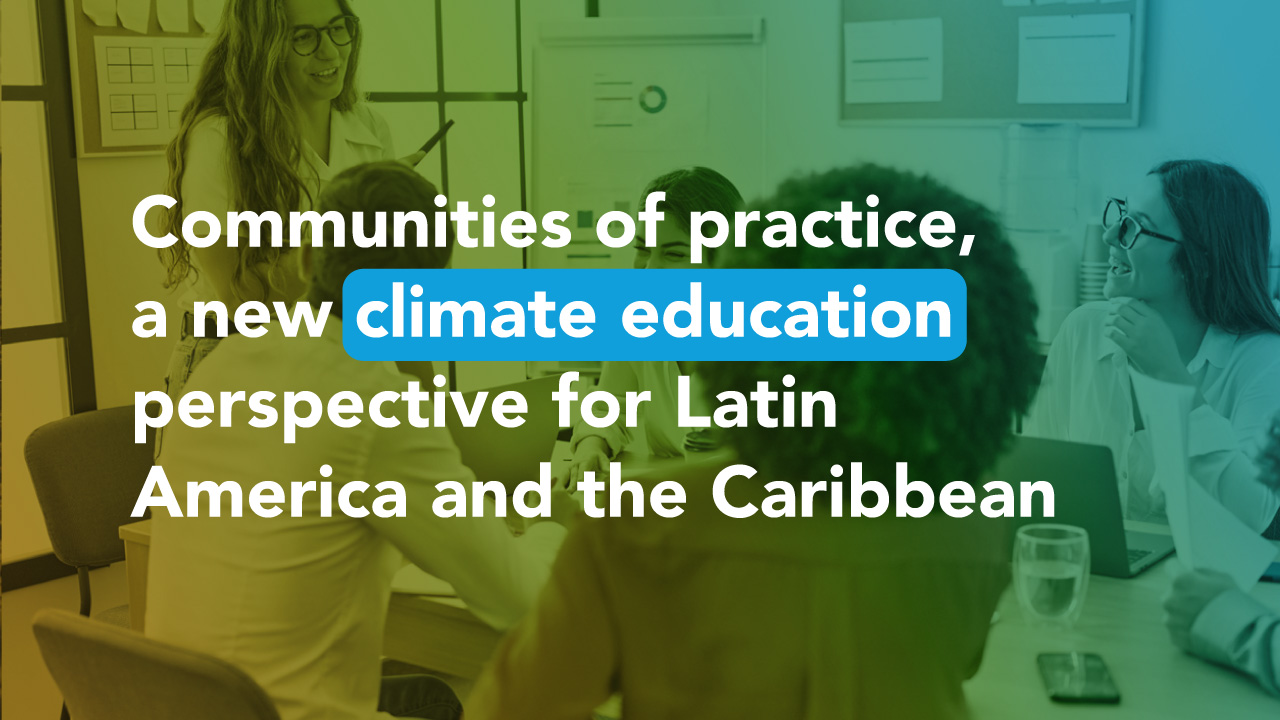María lives in a Latin American city that recently suffered unprecedented flooding, after long and intense episodes of rain. When she was a student, she actively volunteered to prepare her town for natural disasters and now she has the opportunity to work as an environmental management official in her municipality. However, María had never perceived the threats of climate change so vividly. She was determined to, once and for all, educate herself on this issue and learn from different perspectives how to help her city adapt to climate change.
The group of words “climate change education Latin America” yields nearly 7,260,000 results in the search engine. Maria thinks about closing her computer, it might be a little overwhelming to embark on that adventure now. But before giving up, one result catches her attention: communities of practice on climate change. But what is really a “community of practice”? Why are these new educational spaces important in a region like Latin America and the Caribbean (LAC) where 48% of its capital cities are exposed to extreme risk due to the impacts of climate change?
What are communities of practice?
Vásquez Bronfman offers a very accurate definition of what a community of practice is. This author defines it as a space in which a group of people linked by a common, recurring and stable practice over time learn and exchange knowledge that allows them to better perform their tasks (Vásquez Bronfman, 2011). However, the history of communities of practice dates back some years. At the end of the 20th century, Wenger (1998) proposed three pillars within these spaces:
- Mutual commitment: The partial knowledge of each individual is what gives him/her value within the community and the fact that each member shares his/her own knowledge and receives that of others has more value than the power that, in other circles, seems to acquire the one who knows everything.
- Common objectives: The community of practice must cover common objectives and needs, even if not homogeneous. Each member of the community can understand each goal in a different way, but still share it.
- Shared repertoire: A community of practice acquires certain routines, concepts, tools, ways of doing or symbols that it has produced or adopted during its existence and that have been part of its practice.
The common practices of these communities concern a very wide range of sectors, where the challenge of climate change undoubtedly stands out.
Why are they important for the Latin American and Caribbean region in the face of climate change?
Despite the vast social and geographic diversity that characterizes LAC, the impacts of climate change do not distinguish between borders. Droughts and floods represent recurring climate risks that various countries in the region face with increasing frequency. It is in this context where communities of practice emerge as vitally important tools, bringing together actors from different fields, but with socio-political and environmental similarities, all confronting the same challenges. Communities of practice around climate action promote the exchange of experiences and lessons learned in which each member can contribute from their own narrative to the discussion, focusing on solutions. A community of practice fosters the growth of synergies and networks between participants and generates opportunities for ideas and action on climate change to be enriched.
Some specific examples
En estos encuentros se comparten conocimientos con un enfoque altamente práctico, abordando temas como la planificación para la resiliencia, el involucramiento del sector privado y mecanismos de gestión basados en suelo para la adaptación urbana. Funcionarios públicos y jóvenes que provienen de distintas ciudades participan aportando una amplia gama de experiencias y perspectivas y, por ejemplo, representantes de ciudades como Arraiján en Panamá y Durazno en Uruguay, separadas físicamente por más de 5.000 kilómetros, se encuentran en un espacio virtual intercambiando ideas, éxitos y lecciones aprendidas al enfrentarse ambas a los mismos riesgos climáticos de lluvias e inundaciones. Solo entendiendo el diálogo y la discusión como origen y catalizadores de la acción climática, se puede comprender la importancia de continuar promoviendo la colaboración y el intercambio de conocimientos en la región a través de espacios innovadores como las comunidades de práctica.
The impact and relevance of a relatively new knowledge management space, such as communities of practice, take on greater meaning when illustrated with specific examples. Here, we highlight Nature4Cities, a project financed by the Green Climate Fund (GCF), co-financed by the Euroclima+ program of the European Union and focused on planning climate adaptation in 7 countries and 13 cities in LAC. This initiative is successfully developing two communities of practice: one community of practice aimed at professionals engaged in environmental matters and another, GenerAcción para ciudades resilientes, addressed to young people in the region who want to train to be part of a new generation of leaders for urban resilience.
In these meetings, knowledge is shared with a highly practical approach, addressing topics such as resilience planning, private sector involvement and land-based management mechanisms for urban adaptation. Public officials and young people who come from different cities participate, contributing a wide range of experiences and perspectives and, for instance, representatives of cities such as Arraiján in Panama and Durazno in Uruguay, physically separated by more than 5,000 kilometers, meet in a virtual space exchanging ideas, successes and lessons learned when both face the same climate risks of rain and floods. Only by understanding dialogue and discussion as the origin and catalysts of climate action, can we understand the importance of continuing to promote collaboration and knowledge exchange in the region through innovative spaces such as communities of practice.
Special thanks to Natalia López, analyst on climate change adaptation and youth.
References
Vásquez Bronfman, S. (2011). Comunidades de práctica. EDUCAR, 47(1), 51-68. Recuperado el 17 de abril de 2024, de https://www.redalyc.org/articulo.oa?id=342130836004
Wenger, E. (1998). Communities of practice: Learning, meaning and identity. Cambridge University Press.



